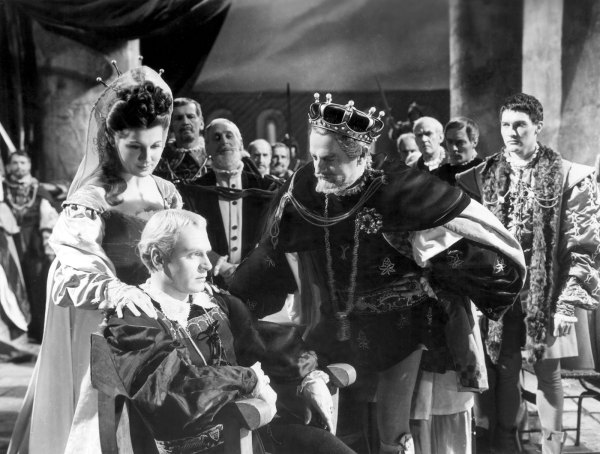
Rio Grande has been my favorite Western movie for as long as I’ve had a favorite. There are plenty of reasons why, but I’m sure one of them is its music—not just the background score, but its wonderful use of vocal music within the story, in scenes that have stuck with me since the first time I saw the movie (colorized—the horror!) on TV as a kid. The soundtrack was one of the first CDs I bought for myself (probably from Barnes & Noble, back in those nostalgic days when I had just made the delighted discovery that they had music CDs on their website and you could actually listen to samples from each track!). I’ve always been a little amazed that a soundtrack album was actually produced, given that it seems to be both an underrated movie and score. According to the Soundtrack Collector website, it looks like the earliest release was an LP in 1981. I wonder who had the impulse to release an obscure soundtrack thirty years after the movie came out, and why? At any rate, I’m glad they did.
With all my fondness for this soundtrack, somehow I’ve never written anything specifically about it before—so for this year’s Legends of Western Cinema Week, a blog event that I never miss, what better than to do some in-depth gushing about the music of Rio Grande?
First up, we have the best piece of music in the movie: the gorgeous, sweeping, heart-stirring main title by Victor Young. I seriously think this is the most underrated main theme in classic film. I’ve always wished that someone would take it into their heads to do a new recording of it—of course it’s great that we have the original soundtrack version, mono sound and slightly blurry quality as it is, but can you imagine how it would sound in stereo and high-quality sound? Paging the City of Prague Philharmonic, or the Boston Pops or the Moscow Symphony…

Appropriately enough considering the distinct Irish-American influence all over Ford’s cavalry trilogy, there is a strong enough similarity between the main theme of Rio Grande and the Irish song “Leaving of Liverpool” that makes me suspect Young may have based his theme on that tune. (I actually succeeded in making a homemade piano arrangement of the theme to Rio Grande by using some of the chords from “Leaving of Liverpool” from my piano songbook of Irish songs.) Oddly enough, and rather regrettably, we never hear this beautiful theme again in the movie after the moving opening scene “Return From Patrol,” except for a tiny fragment of a quotation at 4:28 in the track “Indian Raid / Escape.”
There’s also an interesting example here of a composer re-using bits of his own themes in different scores. Pay attention to the musical phrase at 1:54 of the main title—and then listen to 0:07 of the track “Off to Town / Grafton’s Store” from Young’s score to Shane, three years later. Slightly different rhythm, but almost exactly the same phrase. [Read more…]








